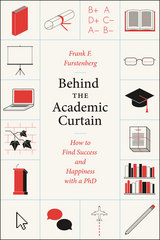
While the greatest anxieties for PhD candidates and postgrads are often centered on getting that tenure-track dream job, each stage of an academic career poses a series of distinctive problems. Furstenberg divides these stages into five chapters that cover the entire trajectory of an academic life, including how to make use of a PhD outside of academia. From finding the right job to earning tenure, from managing teaching loads to conducting research, from working on committees to easing into retirement, he illuminates all the challenges and opportunities an academic can expect to encounter. Each chapter is designed for easy consultation, with copious signposts, helpful suggestions, and a bevy of questions that all academics should ask themselves throughout their career, whether at a major university, junior college, or a nonacademic organization. An honest and up-to-date portrayal of how this life really works, Behind the Academic Curtain is an essential companion for any scholar, at any stage of his or her career.
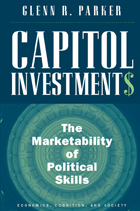
“Who would spend millions for a job that pays $250k? Parker’s answer will surprise you. Required reading for Congress jocks.”
—Michael C. Munger, Duke University
“A unique and interesting approach to the study of legislators and legislative institutions.”
—David Brady, Stanford University
What would you do if, the very day you were hired, you knew you could be unemployed in as little as two years? You’d seek opportunities in your current job to develop a portfolio of skills and contacts in order to make yourself more attractive to future employers. Representatives and senators think about their jobs in Congress in precisely this way, according to Glenn R. Parker.
While in office, members of Congress plan not merely for the next election but for the next stage of their careers. By networking, serving on committees, and championing particular legislation, they deliberately accumulate human capital—expertise, networks, and reputation—which later gives them advantages on the job market. Parker’s study of the postelective careers of more than 200 former members of Congress who left office during the last half century shows that, in most cases, the human capital these politicians amassed while in office increased their occupational mobility and earning power.

Replete with practical advice for anyone considering a career in federal, state, or local government, Caught between the Dog and the Fireplug, or How to Survive Public Service conveys what life is really like in a public service job. The book is written as a series of lively, entertaining letters of advice from a sympathetic uncle to a niece or nephew embarking on a government career.
Kenneth Ashworth draws on more than forty years of public sector experience to provide advice on the daily challenges that future public servants can expect to face: working with politicians, bureaucracy, and the press; dealing with unpleasant and difficult people; leading supervisors as well as subordinates; and maintaining high ethical standards. Ashworth relates anecdotes from his jobs in Texas, California, and Washington, D.C., that illustrate with humor and wit fundamental concepts of public administration.
Be prepared, says Ashworth, to encounter all sorts of unexpected situations, from the hostile to the bizarre, from the intimidating to the outrageous. He shows that in the confrontational world of public policymaking and program implementation, a successful career demands disciplined, informed thought, intellectual and personal growth, and broad reading. He demonstrates how, despite the inevitable inefficiencies of a democratic society, those working to shape policy in large organizations can nonetheless effect significant change-and even have fun along the way.
The book will interest students and teachers of public administration, public affairs, policy development, leadership, or higher education administration. Ashworth's advice will also appeal to anyone who has ever been caught in a tight spot while working in government service.

Now that the welfare system has been largely dismantled, the fate of America's poor depends on what happens to them in the low-wage labor market. In this timely volume, Katherine S. Newman explores whether the poorest workers and families benefited from the tight labor markets and good economic times of the late 1990s. Following black and Latino workers in Harlem, who began their work lives flipping burgers, she finds more good news than we might have expected coming out of a high-poverty neighborhood. Many adult workers returned to school and obtained trade certificates, high school diplomas, and college degrees. Their persistence paid off in the form of better jobs, higher pay, and greater self-respect. Others found union jobs and, as a result, brought home bigger paychecks, health insurance, and a pension. More than 20 percent of those profiled in Chutes and Ladders are no longer poor.
A very different story emerges among those who floundered even in a good economy. Weighed down by family obligations or troubled partners and hindered by poor training and prejudice, these "low riders" moved in and out of the labor market, on and off public assistance, and continued to depend upon the kindness of family and friends.
Supplementing finely drawn ethnographic portraits, Newman examines the national picture to show that patterns around the country paralleled the findings from some of New York's most depressed neighborhoods. More than a story of the shifting fortunes of the labor market, Chutes and Ladders asks probing questions about the motivations of low-wage workers, the dreams they have for the future, and their understanding of the rules of the game.

Reference and user services librarians need to be in charge of their own careers. And when it comes to their own professional development, that means being proactive. This resource will enable professionals at every stage of their careers to honestly assess their skills and knowledge. Utilizing the RUSA (Reference and User Services Association) Professional Competencies as a framework for reflecting on strengths as well as gaps in expertise, it guides readers through developing strategies to enhance their professional standing and potential, thereby leading to a more satisfying career. In this book former RUSA president Whitlatch, who chaired the initial committee establishing the Competencies, teams up with expert trainer Woodard to
- introduce the seven categories of the RUSA Professional Competencies, explaining the ways in which each is important to both practitioner and institution;
- demonstrate how to create a personal development plan that focuses on development priorities;
- discuss the Association for Talent Development (ATD) Competency Development Model and other action plans;
- offer guidance for setting goals and measuring progress;
- share information on a variety of development activities that readers can undertake to maintain and enhance professional competencies, including formal training opportunities, on-the-job experiences, and self-directed initiatives; and
- provide recommended self-evaluation techniques such as writing up notes from group discussions, exercises, short verbal and written reports, crafting presentations on a topic, and sharing concrete examples of how skills were applied in the workplace.

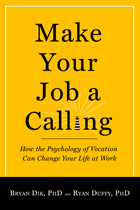

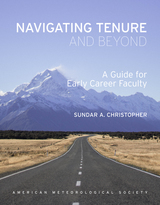




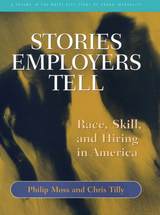

The best kind of learning is that which never ends—and a culture of training means that staff will be more flexible and responsive to new ideas and strategies, imperative in today's libraries. In this practical resource, leading workplace trainers Reed and Signorelli offer guidance on improving the effectiveness of training programs. Their book takes readers through the entire process of developing, implementing, and sustaining training programs and communities of learning, in order to
- Empower individuals to become leaders and teachers by cultivating a culture of ongoing learning
- Connect library staff and users to information resources so they can effectively use them to their benefit
- Develop skills among both managers and workers for practicing continuous formal and informal training
READERS
Browse our collection.
PUBLISHERS
See BiblioVault's publisher services.
STUDENT SERVICES
Files for college accessibility offices.
UChicago Accessibility Resources
home | accessibility | search | about | contact us
BiblioVault ® 2001 - 2024
The University of Chicago Press









